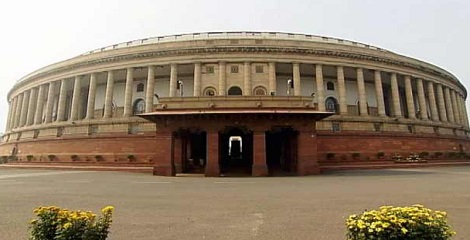Four key economic Bills that would validate the reformist credentials of the Modi-led Government were introduced in the Lok Sabha. These Bills sought to bring in legislative changes in atomic energy, potable alcohol, commercial disputes and bonus payments.
Potable alcohol
A Bill to bring industries engaged in the manufacture of “potable alcohol” under the total and exclusive control of States in all respects was also introduced in the Lok Sabha.
- The Bill proposes to amend the first schedule of the Act so that it would be in conformity with the judgement of the Supreme Court of 1997 (potable alcohol is to come under the control of states).
- The Industries (Development and Regulation) Amendment Bill was passed by a voice vote.
 However, the Centre would continue to be responsible for formulating policy and regulating foreign collaboration (foreign direct investment and foreign technology collaboration agreements) for all products of fermentation industries, including industrial and potable alcohol.
However, the Centre would continue to be responsible for formulating policy and regulating foreign collaboration (foreign direct investment and foreign technology collaboration agreements) for all products of fermentation industries, including industrial and potable alcohol.
Bonus Payments
- Bill to enhance the eligibility limit for bonus payment from Rs.10,000 per month to Rs. 21,000. Also, the Payment of Bonus (Amendment) Bill 2015 seeks to raise the calculation ceiling from Rs. 3,500/month to Rs. 7,000/month or the minimum wage for the scheduled employment, whichever is higher.
- If this enhanced ceiling is adopted, then it may lead to additional ad hoc bonus payout of Rs. 3,128 crore to employees of the central government, the Railways and the postal department (productivity-linked bonus).
Atomic energy
The Atomic Energy (Amendment) Bill 2015 enables the formation of JV companies between Nuclear Power Corporation of India (NPCI) and other PSUs for civil nuclear power projects in the country.
- It also enable the Centre to issue licenses to such JV companies to set up nuclear power plants, take measures for their safe operation and ensure disposal of nuclear material.
Commercial disputes
This Bill would pave the way for constitution of commercial courts at the district level.
- It seeks to replace an existing ordinance that would lead to the setting up of a commercial appellate division in all High Courts to hear the appeals against the orders of the commercial courts and the orders of the commercial division of the High Court.

